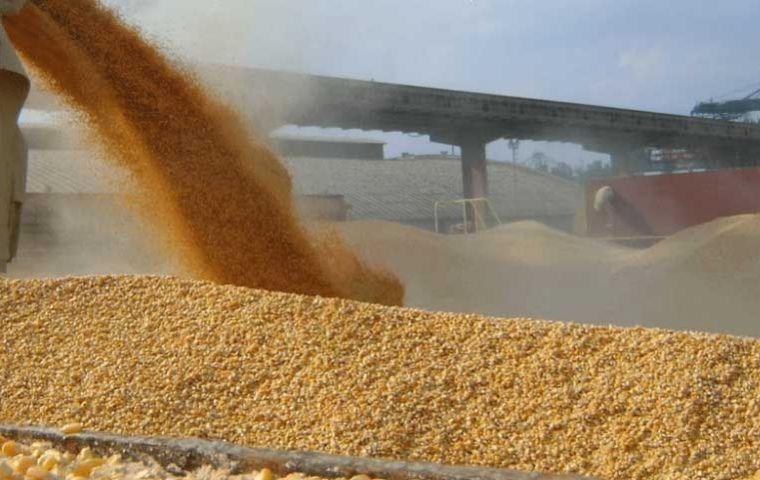MercoPress. South Atlantic News Agency
Brazil forced to large imports of wheat, despite government's goal of self sufficiency
 Over the past 12 months, a total of 5.7 million tons of wheat arrived at Brazilian ports—the highest 12-month cumulative result since December 2022
Over the past 12 months, a total of 5.7 million tons of wheat arrived at Brazilian ports—the highest 12-month cumulative result since December 2022 Brazil's imports of wheat in the first seven months of the year are almost equal to the total volume purchased overseas during 2023. The report is from the Center for Advanced Studies in Applied Economics (Cepea) at the University of São Paulo, and most probably can be attributed to the catastrophic floods in the southern states of the country, which are the main producers of the grain.
In the first seven months of this year, Brazil’s wheat imports surpassed four million tons, compared to 4.2 million tons for all of 2023. Over the past 12 months, a total of 5.7 million tons of wheat arrived at Brazilian ports—the highest 12-month cumulative result since December 2022, according to data from the Foreign Trade Secretariat (Secex), belonging to the Economy ministry.
Low domestic availability of wheat is driving the external purchases. Estimates from the National Supply Company (Conab) suggest that final stocks in July 2024 would be enough to cover less than three weeks of consumption.
Globo Agro report says that the significant influx of foreign wheat has also pushed domestic prices down. This week in Rio Grande do Sul, the Cepea/Esalq index reported an average price of R$ 1,417.09 per ton (US$ 258), reflecting a 1.99% decline from August to date. This was partly due to the fact that Brazil is giving non Mercosur member countries to ship wheat to the country.
Brazil consumes over 12 million tons of wheat and wheat-based products per year, which is more than the country's national production of roughly 9.5 million tons. As a result, Brazil is among the top ten importers of wheat in the world.
However, the Brazilian government is committed to making the country self-sufficient in wheat production within the next decade. This should be achieved by cultivating land in the Cerrado, a savanna-like region in Central Brazil. The government aims to expand wheat production in almost 4 million hectares of degraded land and use adapted wheat ('tropical') seed varieties that are resistant to dry weather and soil conditions prevalent in the region.




Top Comments
Disclaimer & comment rulesCommenting for this story is now closed.
If you have a Facebook account, become a fan and comment on our Facebook Page!